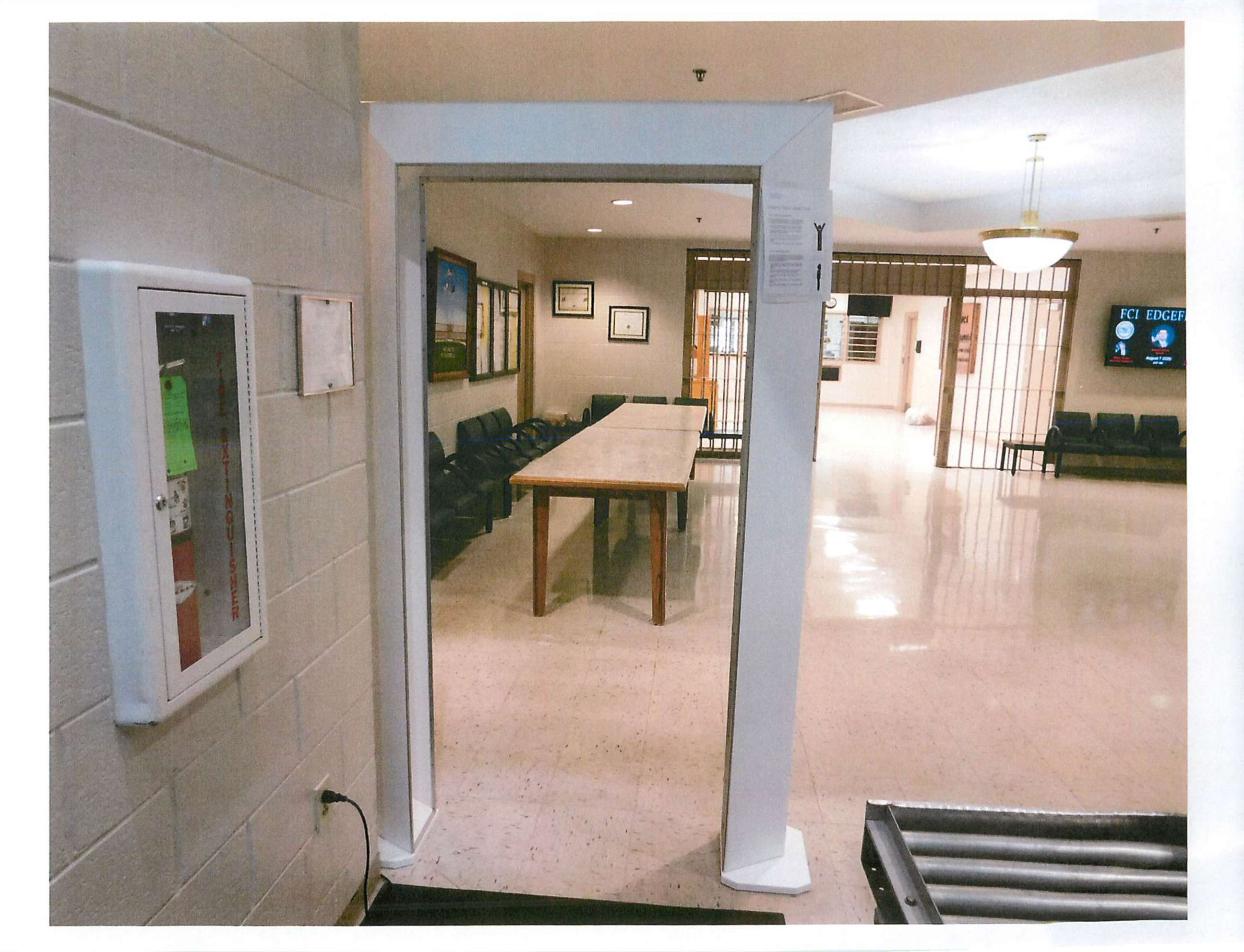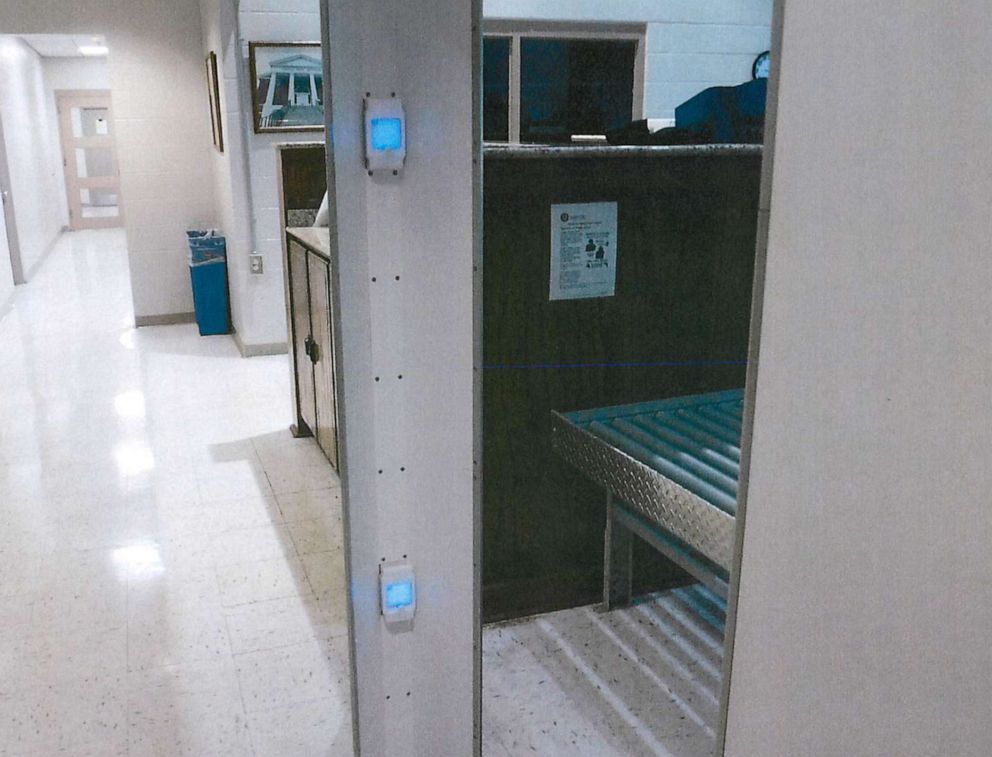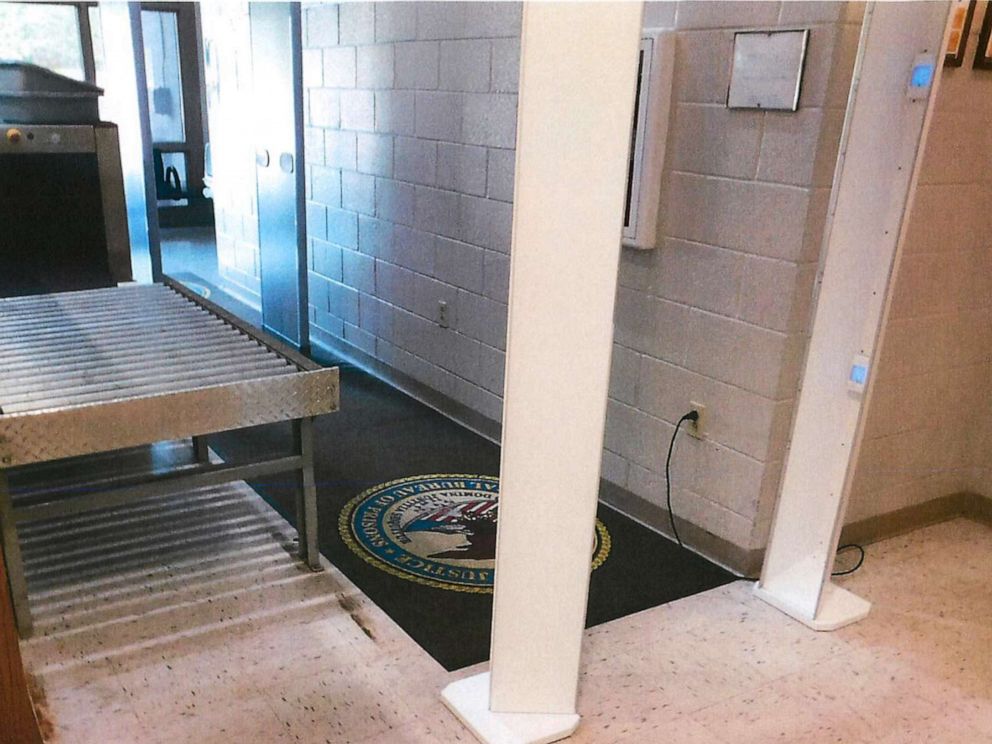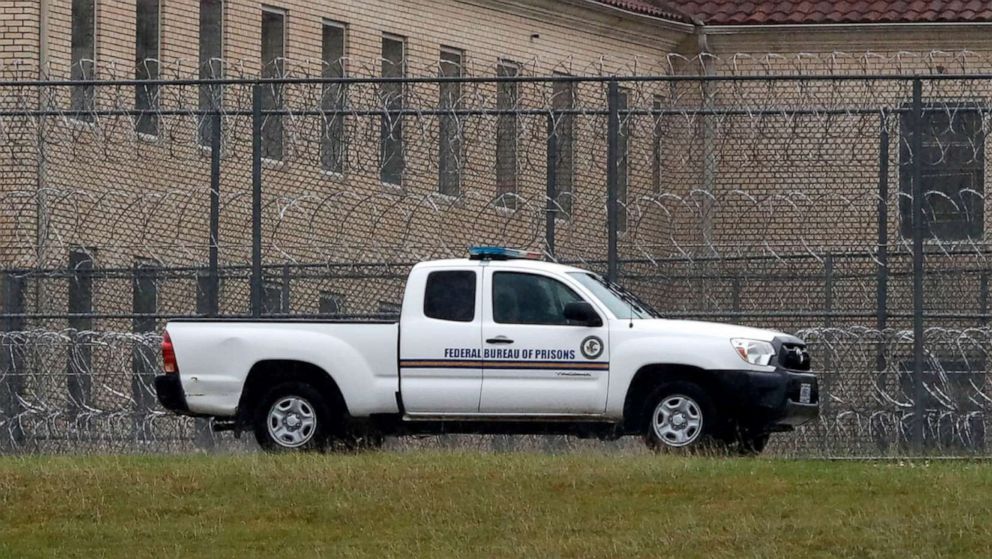Bureau of Prisons spends nearly $3 million on UV sanitizing gates, contracts show
The WHO warns against using UV light on humans.
The Bureau of Prisons has spent almost $3 million dollars on ultraviolet sanitizing devices to combat COVID-19 at 122 federal prisons, regional offices and its central office in Washington, D.C., according to the Bureau of Prisons, which confirmed the purchase to ABC News.
The contract, which was obtained by ABC News and dated May 15, says that GM Hill Engineering, based in Jacksonville, Florida, is providing the BOP with ultraviolet sanitizing gates -- even though the World Health Organization says UV light technologies should not be used on human beings and there is no definitive scientific research on the use of UV light to protect against COVID-19.
GM Hill did not respond to ABC News' request for comment.
The technology that the BOP has purchased involves people passing through a "gate" of UV light, which, according to the industry, will kill any germs related to COVID-19. BOP says that portals have already begun to be installed at its facilities and that all machines will be delivered by Oct. 31.

According to the Bureau of Prisons, 108 inmates have died of COVID-19 and over 10,000 inmates have tested positive. More than 1,200 corrections officers have been infected by COVID-19.
"These portals are a supplement to the BOP's overarching efforts to ensure the safety and health of our staff and inmates during the pandemic," the BOP said in a statement to ABC News.
While widely touted as a multifaceted solution, the use of UV light involving humans is not without controversy. A month before the contract was written, the International Ultraviolet Association, an organization that seeks to make the use of UV technology more prevalent in public health, discouraged the use of UV light on the human body to fight against COVID-19.
"We would like to inform the public that there are no protocols to advise or to permit the safe use of UV light directly on the human body at the wavelengths and exposures proven to efficiently kill viruses such as SARS-CoV-2," the group said in a statement.

Dr. Jay Bhatt, the former chief medical officer at the American Association of Hospitals and an ABC News contributor, said that this is an emerging field with limited scientific study.
"I think the technology is relatively new, and has to be proven. Further, I think that businesses should be thoughtful and careful as they're deploying various UV light technology to use for for disinfection because, ultimately, we've got to keep people safe and we don't want further increasing cases, when we're really just getting a handle on it, and in parts of the country," he said.
Additionally, the World Health Organization has recommended that UV light technologies not be used on people.
"The use of tunnels or other physical structures (booths, cabinets, gates) with disinfection aspersion, spray devices or UV-C radiation are not recommended for use on humans," the organization writes.
The WHO says, "UV-C radiation can cause harmful health effects. These include skin and eye irritation, sunburn, eye injury, digestive tract irritation and cancer. Looking directly at irradiating UV-C light can cause cornea damage. UV-C radiation can generate ozone, a harmful air pollutant."

The Bureau of Prisons Union has also sounded the alarm on the use of UV light technology, saying it is potentially dangerous to its members.
"Spending $3 million on unproven technologies is waste, fraud and abuse. That money should have been allocated to hiring staff," Joe Rojas, Southeast Region vice president of the BOP union said. "We have institutions at critical levels like USP Thompson, FCC Beaumont, Yazoo, etc. They are at critical levels."
Rojas says he filed a complaint with the Department of Justice inspector general.
The Food and Drug Administration is allowing UV light to be used in disinfection of surfaces, but has not approved the use of the BOP's technology. U.S. airlines, such as JetBlue, have also tested the use of a UV light machine on empty planes that the airline says can disinfect the cabin of a plane in less than 10 minutes.
Other companies, such as Magnolia Bakery in New York, the Seattle Space Needle in Washington and United Airlines have also deployed this little-known technology.
The technology is safe, Fred Maxik, the chief scientific officer of Healthe Lighting, said.
Healthe Lighting is a company that develops technology for UV air and surface sanitation. It is unknown if BOP is using Healthe lighting products.
"The system that we are proposing is a 220 nanometer system that's been found to be safe for our skin and eyes and we can occupy that space at the same time the light's been turned on," Maxik told New York ABC station WABC.

The Metropolitan Transit Authority, which operates the New York City subway system, has also deployed the use of UV technology.
"Ultraviolet light is proven to be an effective technology for eliminating viruses, and has been previously used to combat the SARS virus," they said in a statement.
The International UV Association said that UV light "will be effective in a wide range of disinfection applications for air and surface treatment. However, more work is required to understand the variation of its efficiency against a wider range of pathogens of interest and the suitability of each application must be assessed on a case-by-case basis."
The BOP has been under scrutiny for its response to the COVID-19 pandemic, so much so that Pennsylvania Republican Rep. Fred Keller introduced a bill to require Senate confirmation for the BOP director.
Heightened COVID-19 risk to inmates and staff comes as BOP tactical teams were deployed to protests in Washington, D.C., and other cities throughout the summer.
Shane Fausey, the Council of Prison Locals president, said that 700 correction officers were deployed, "in less than 72 hours, to multiple locations across the nation."
"Quietly, you protected our nation's historical monuments, countless businesses, and cities, you even protected those exercising their Constitutional right to peacefully assemble. With violence and looting in check, America was once again allowed to be America," Fausey wrote in a letter to his members.




